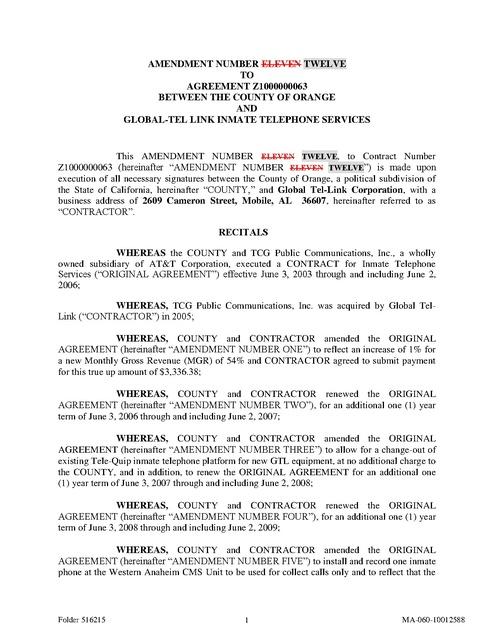Imagine unboxing your shiny new smartphone, excitement buzzing as you power it on-only to realize that this sleek device comes with an invisible leash: a three-year commitment to T-Mobile. As carriers fiercely compete to keep customers hooked beyond the usual two-year contracts, T-Mobile’s latest move might redefine what it means to buy a phone. While longer deals aren’t unheard of, the prospect of locking oneself into such an extended agreement raises questions about flexibility, cost, and control in the ever-evolving landscape of mobile connectivity. Could your next phone plan be a surprising twist in how we stay connected? Let’s explore what this shift means for consumers and the wireless industry alike.
Understanding the New Three-Year Commitment for T-Mobile Customers
When grabbing a new handset through T-Mobile, customers may now find themselves tied to a three-year service commitment, a shift from the typical two-year contracts widely seen in the industry. This extended duration is designed to offer more flexible monthly payment options, but it also means a longer period before you can upgrade without potential penalties. While this might feel restrictive, T-Mobile emphasizes that the plan aims to balance affordability with access to the latest devices and network improvements.
To better understand this commitment, consider key elements such as:
- Monthly installment terms: Spread over 36 months, potentially lowering monthly fees.
- Upgrade eligibility: Limited or delayed depending on contract specifics.
- Early termination fees: May apply if you exit before the contract ends.
Here’s a quick overview of how the new commitment compares to previous plans:
| Plan Feature | Old Two-Year Contract | New Three-Year Commitment |
|---|---|---|
| Contract Length | 24 months | 36 months |
| Monthly Payment | Higher | Lower per month |
| Upgrade Frequency | After 12-18 months | After 24-30 months |
| Early Termination Fee | Yes | Higher potential fee |

How Extended Phone Contracts Impact Your Flexibility and Finances
Locking yourself into a lengthy phone contract can significantly shape both your financial situation and personal freedom. With T-Mobile’s new push toward 3-year agreements, you might find yourself bound to not just one device but a multi-year commitment that limits your ability to switch plans or upgrade your phone without incurring penalties. Unlike shorter contracts, extended deals reduce your bargaining power in a fast-evolving tech landscape, where new devices and better offers appear frequently. Consider how this rigidity might conflict with your desire for flexibility and financial control.
- Reduced ability to switch carriers or plans freely
- Potential for higher total costs over the contract duration
- Risks of paying for outdated technology halfway through the term
From a budgeting perspective, locking into a 3-year phone contract means spreading payments over a longer period, which might sound manageable but could hide inflated interest or service fees. Here’s a quick comparison of average yearly costs for phone plans under different contract lengths:
| Contract Length | Average Annual Payment | Upgrade Frequency |
|---|---|---|
| 1 Year | $600 | Frequent (annually) |
| 2 Years | $1100 | Moderate (biannually) |
| 3 Years | $1600 | Infrequent (triennially) |
Ultimately, longer contracts might appear more affordable when broken down monthly, but they can leave you financially tethered and technologically behind. Weighing these factors carefully is crucial before committing to such extended agreements.

Weighing the Pros and Cons Before Signing a Lengthy Agreement
Entering a multi-year contract with a carrier like T-Mobile demands careful consideration. On the positive side, locking into a 3-year agreement often translates to discounted phone prices or exclusive offers that can make the latest device more affordable upfront. Extended contracts may also come bundled with added perks-think enhanced customer support or priority service that keep you connected smoothly for years. However, such a long-term commitment inevitably affects your flexibility. Changing plans, upgrading devices, or switching networks becomes considerably more complicated and often pricey before the contract expires.
To better visualize the impact, here’s a quick snapshot of what a 3-year T-Mobile deal might entail compared to shorter-term options:
| Aspect | 3-Year Contract | 1-Year Contract | No Contract |
|---|---|---|---|
| Phone Cost | Lower upfront | Moderate upfront | Full price |
| Upgrade Flexibility | Very Limited | More flexible | Full freedom |
| Early Termination Fee | High | Moderate | None |
| Promotional Perks | Higher | Moderate | None |
Ultimately, weighing these pros and cons against your personal needs and lifestyle will help determine if betting on a three-year journey with T-Mobile is a smart move or just another modern-day trap in the wireless world. Consider your tech habits, budget constraints, and tolerance for long-term lock-ins before putting pen to paper.

Smart Strategies to Navigate Long-Term Deals Without Losing Control
Locking into a multi-year agreement might feel like sinking into quicksand-once you’re in, escaping without consequences is tough. To keep your footing, start by evaluating the true cost of commitment. Beyond monthly fees, scrutinize upgrade restrictions, early termination charges, and how device repairs are handled. If the contract’s fine print feels like a labyrinth, don’t hesitate to ask for clarification or negotiate terms. After all, clarity now can save you from unexpected headaches down the road.
Consider these tactics to wield control in lengthy contracts:
- Opt for flexibility: Look for plans offering mid-contract adjustments or early upgrade options without penalties.
- Leverage tech trade-ins: Use trade-in policies to keep your device fresh and mitigate long-term costs.
- Document everything: Keep records of all communications and transactions related to your deal.
| Strategy | Benefit |
|---|---|
| Early Payoff Clause | Save on fees, regain choice sooner |
| Device Protection Plans | Avoid costly repairs, maintain device value |
| Regular Plan Reviews | Stay updated on promos, avoid overpaying |
In Conclusion
As the smartphone landscape continues to evolve, the prospect of a three-year contract with T-Mobile signals a shift in how we commit to technology-and to our carriers. While longer agreements might offer stability and savings, they also raise questions about flexibility and consumer choice in a world where innovation never slows down. Whether this move becomes the new norm or a passing trend, one thing is clear: your next phone deal could be more than just about the device-it might shape your digital future in ways you haven’t yet imagined. Choose wisely.

